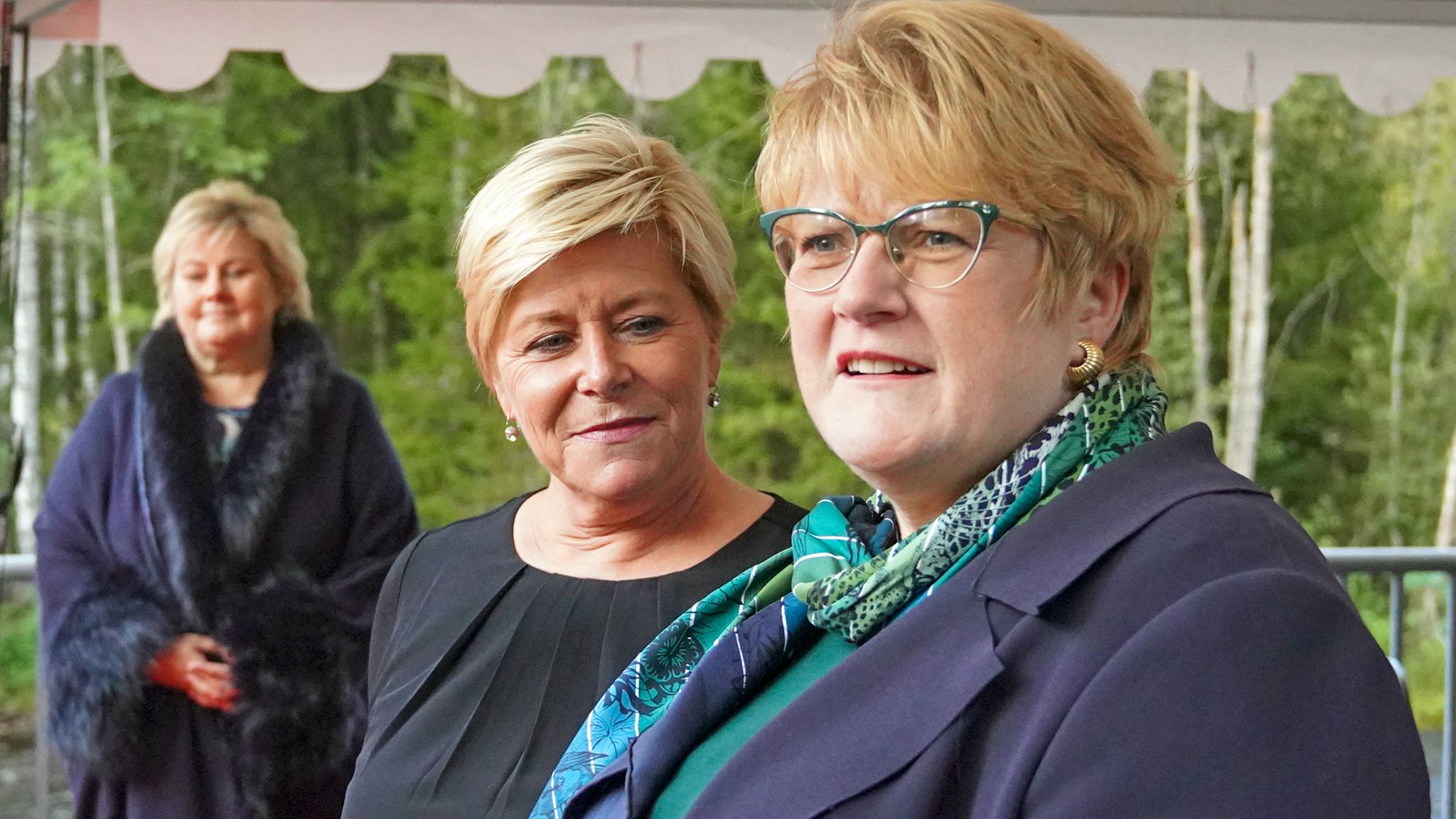Have there been fewer women with short hair? Trine Skei Grande believes that the expectation of having long hair can be as compulsive as covering the hair in other cultures.
Linn Anette Østensen (34) has known about expectations for long hair. – It is not exactly the case that there are so many on Instagram with short hair. Photo: Ketil Blom Haugstulen
––
How locked are Norwegians’ perceptions of women’s hair?
It became a topic in the comments field when “woman (50)” wondered whether in good adulthood one should go for “wife style” (short hair) or “witch look” (long hair) in the weekend magazine D2’s column «Stilkoden».
In a slightly humorous tone, fashion writer Anders Kemp replied:
“The short, practical hair, the public sector weld, has for decades been the hairstyle women swear by when they round a given point in life. The triumvirate Erna Solberg, Siv Jensen and Trine Skei Grande are examples of the fact that the weld is not necessarily conical, but also associated with power. This is the hair you must have if you are to decide! ».
“Long hair is the hijab of our culture,” commented former Liberal Party leader Trine Skei Grande.
 —-
—-Trine Skei Grande (V), Siv Jensen (Frp) and Erna Solberg (H). Photo: Marit Hommedal / NTB
––
– Compulsive
– There is an expectation that women should have long hair. That is what I mean by long hair being the hijab of our culture, says Trine Skei Grande (V) to Aftenposten.
Throughout her political career, she has received many comments and questions about her short hair.
– The short hair was a political statement for Hulda Garborg. It has become for me too. It is about freeing oneself from an ideal of beauty, says Grande.
When she visits school, she likes to count how many young girls have short hair.
– Often there are only a few in a school with 600-700 students. I do not mean that all 17-year-olds should cut their hair short, but the expectation of having long hair can be as compulsive as covering your hair in other cultures.
– An important opposite
– Human culture has always been concerned with hair and hair. Hair, beauty and changing ideas about gender, beauty and hygiene are as old as us, says art and fashion historian and columnist Ragnhild Brochmann.
She believes that the way you manage your own body is only negative if you follow a norm you would like to be without.
For young girls and women, fashion has been about long hair since around 2005:
– Here it is especially the similarity among young girls that is interesting. We could imagine that the latest wave of feminism, body positivism, anti-fashion and the steadfast love of the 90s, had brought with it a new wave of short hair, says Brochmann.
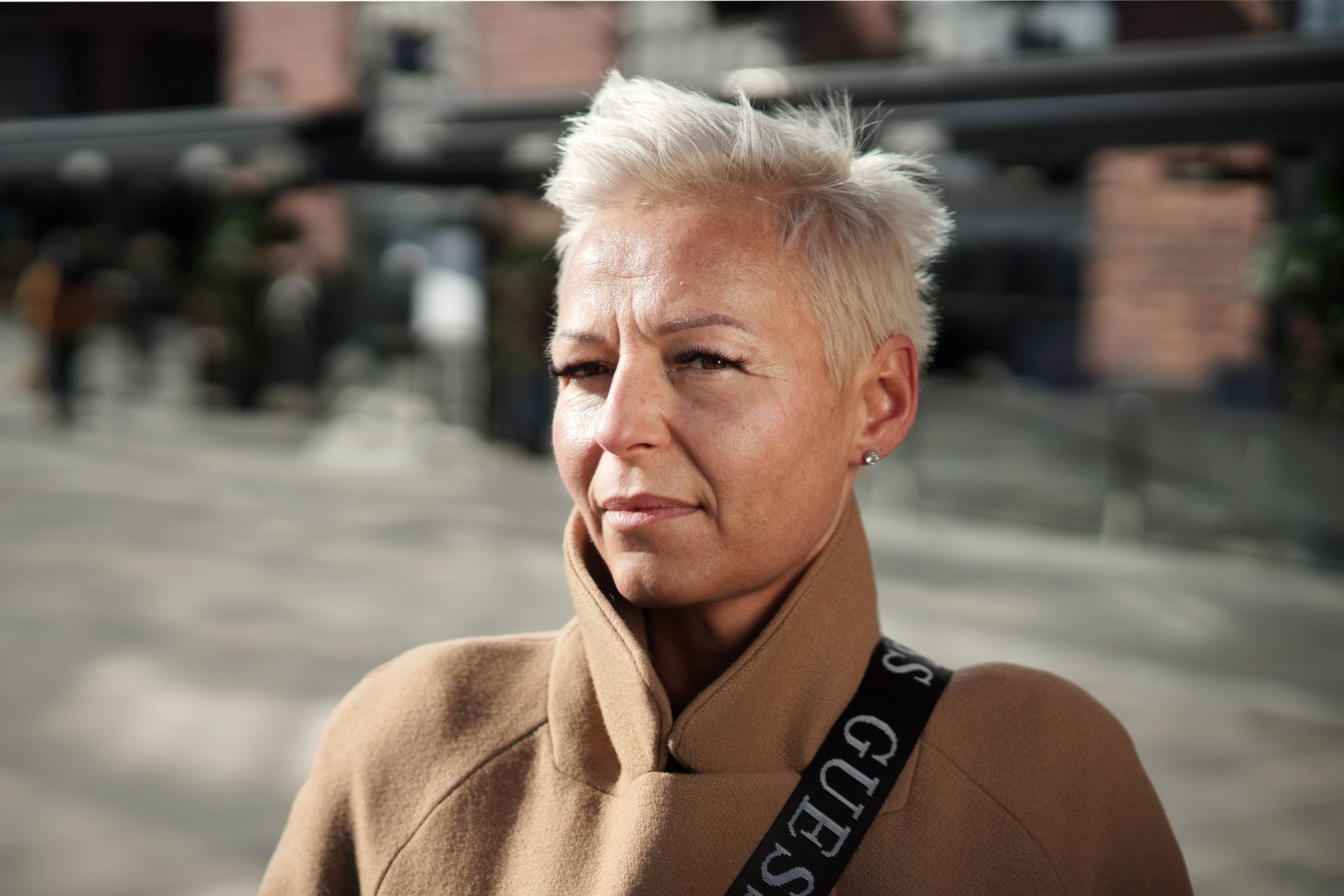 —-
—-Patrycja Rybak (42) is from Poland. She cut her hair short in her early 20s. – In Norway, there are many with long hair, she says. Photo: Ketil Blom Haugstulen
––
For today’s well-adults and elderly, short hair is no longer just about the freedom to choose short, but also that you can choose the easy-care.
– Frequent hairdresser visits also cost time and money, so to speak, but short hair without a permanent is also man-practical. And a style that constantly expresses an important contrast to the traditionally feminine.
Brochmann believes this has been, and still is, a point in politics.
– Point to female top politicians around the world, and you will still find few with long locks. Even among the younger ones.
– Practical
There are not many women with short hair Aftenposten meets on a trip through Oslo city center on Sunday afternoon. But then luckily Anne Louise Fougli Haave (79) comes by.
– Have you ever felt the pressure to have long hair?
– No, I have not felt that. I’ve always had short hair. It’s convenient.
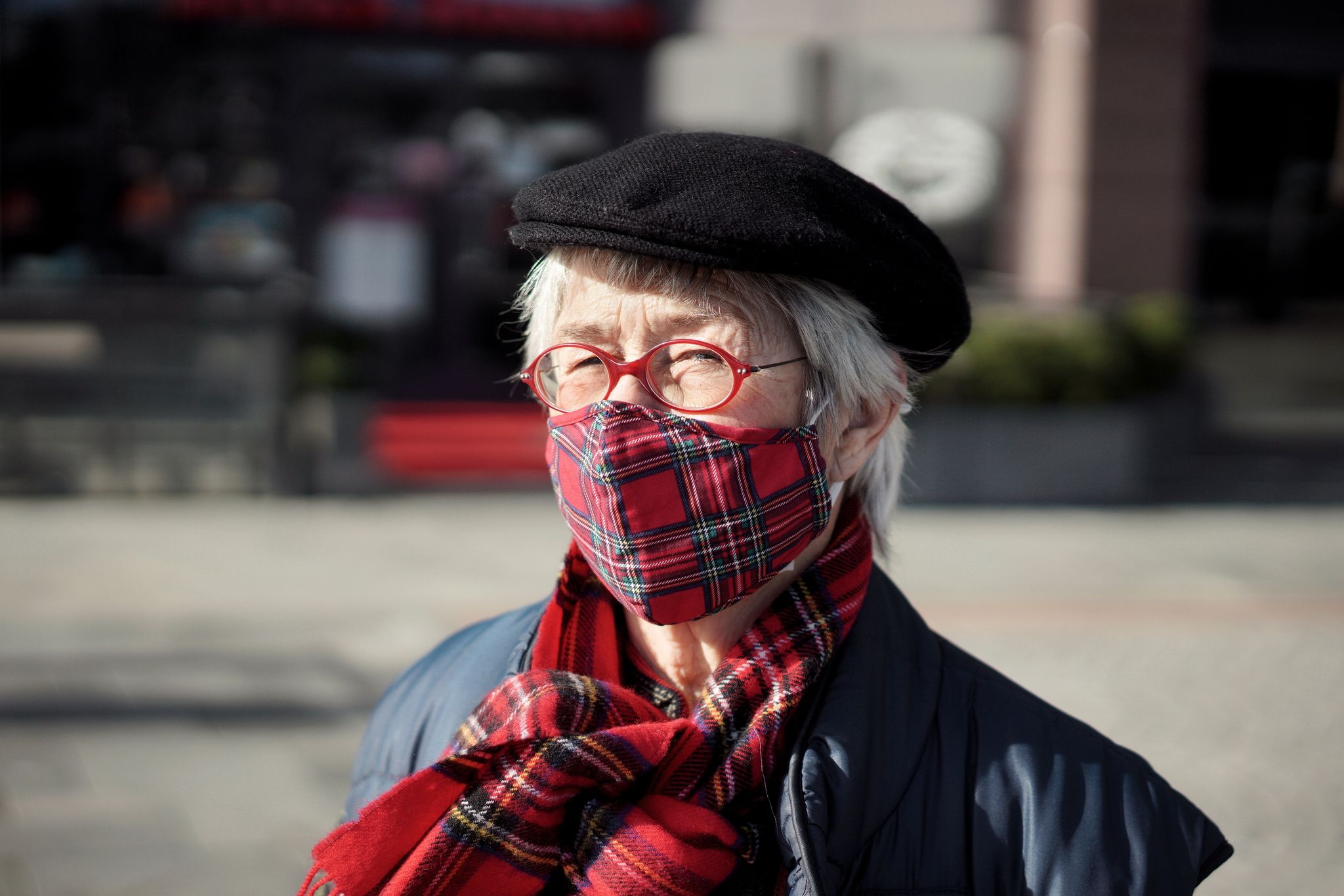 —-
—-Anne Louise Fougli Haave (79) has had short hair most of her life. Photo: Ketil Blom Haugstulen
––
But Haave has noticed that there is a lot of long hair among younger women.
– Yes, it should kind of lie on the front of the chest and be a little curly. Before, it might have been the case that you were a bit “business-like” if you had short hair, but that does not seem to be the case anymore, she says.
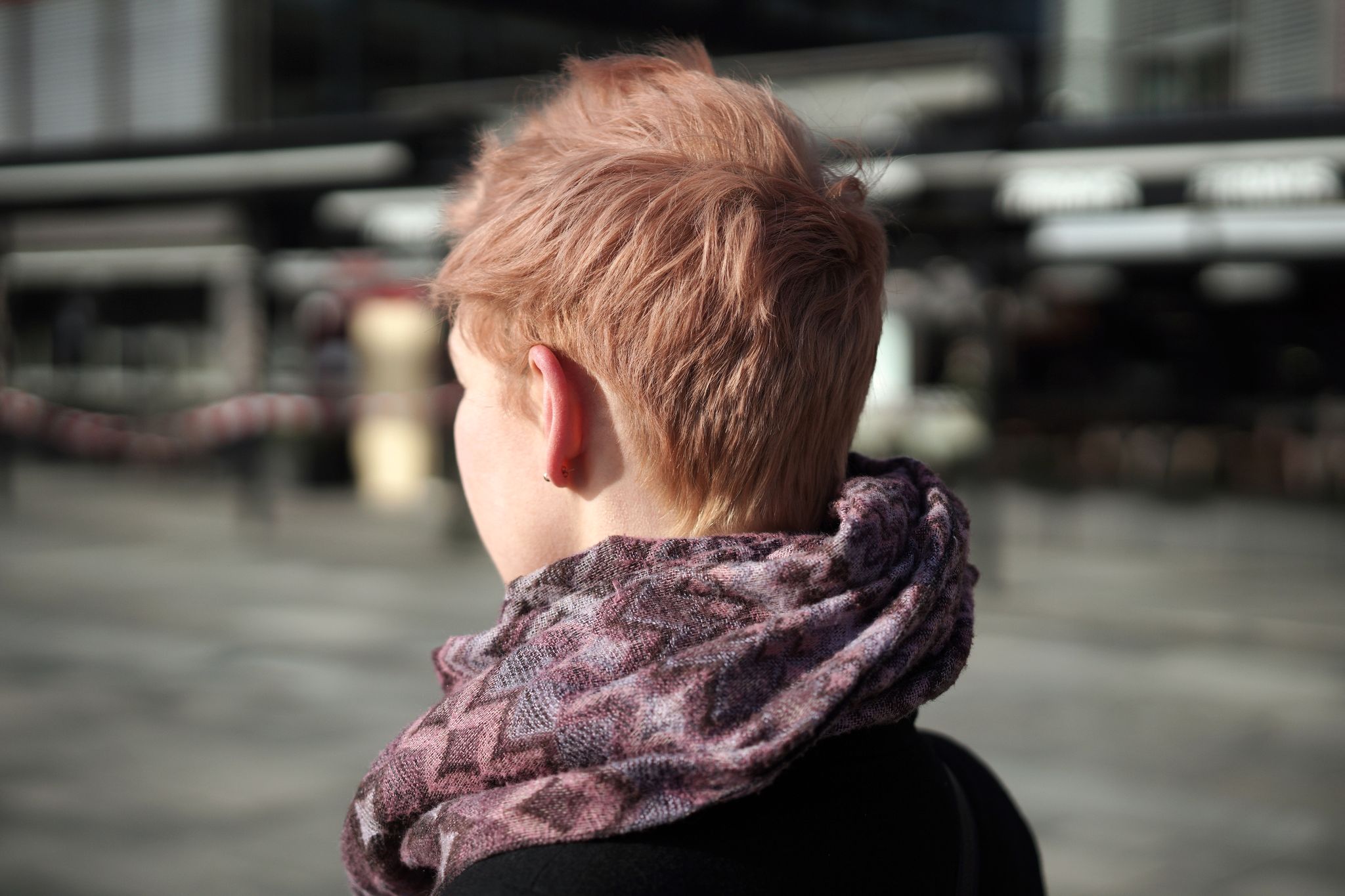 —-
—-When Linn Anette Østensen cut her hair short a few years ago, she chose to donate her hair. It’s nice to think about if she regrets the choice. Photo: Ketil Blom Haugstulen
––
The youngest with short hair we find is Linn Anette Østensen (34).
– It is sort of a perception that you are not as feminine if you have short hair, she says.
She says that she has felt an expectation that she should have long hair.
– It is not exactly the case that there are so many on Instagram with short hair. Or many younger women in general.
– Indescribable lead
Trine Skei Grande thinks that discussions about women’s clothes and hair often take on a completely different character than similar debates about men.
– You break with a beauty ideal if you have short hair. Since the dawn of time, women’s hair has been discussed by men. We must deal with our attitudes. All as one, says Grande.
When Labor deputy leader Hadia Tajik launched the book “Freedom” last autumn, she was criticized for destroy for themselves with the book cover. A pair of Converse shoes made a picture of US Vice President Kamala Harris discussed up and down.
– I am so indescribably tired of the fact that especially female politicians’ appearance must always be commented on. We must stop saying that one is right and the other is wrong, says Grande.
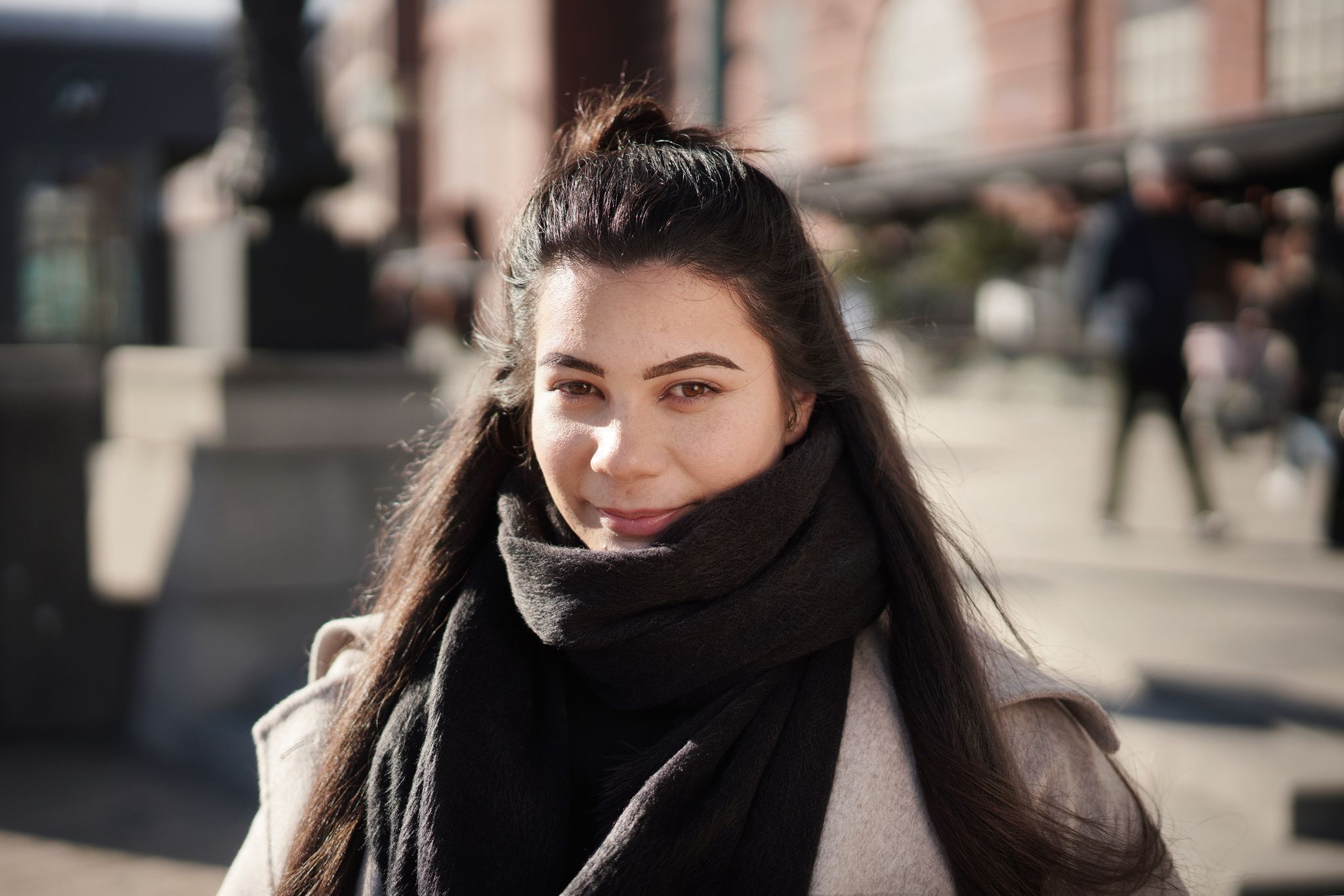 —-
—-Cathrine Pedersen (27) has no plans to cut herself short. – I have long hair because I like it. It’s nothing more than that, really. Photo: Ketil Blom Haugstulen
––
The mittens of the democrat Bernie Sanders were discussed in a completely different way, she believes.
– Then it’s just kind of charming. Men are discussed with a completely different sign and much less aggression.
– I do not want to seem angry and bitter, but this really irritates me, she adds.
– Is not that a typical woman thing to say?
– No, I think very few of us want to be perceived as angry, even if we engage in a case that we think is unfair or frustrating. But it is perhaps a bit typical that the “sour” label is pasted on women, and that we are therefore more careful to avoid it.
–
